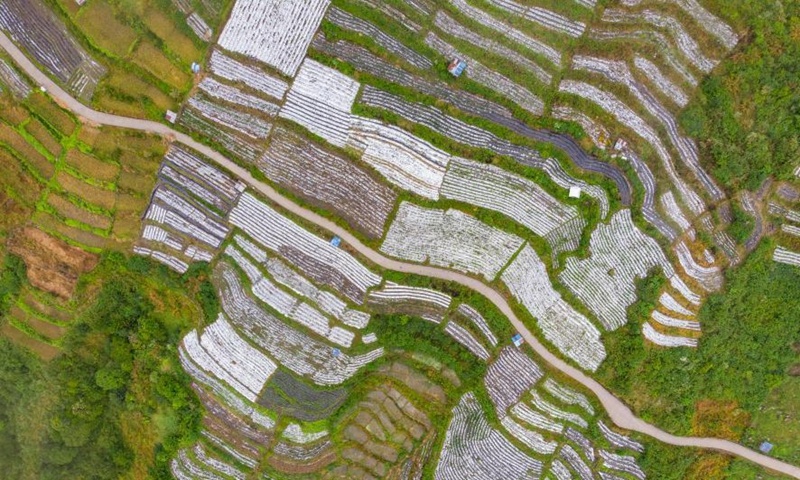
Aerial photo taken on Oct. 26, 2019 shows a road crossing a field in Medog County, southwest China's Tibet Autonomous Region. (Xinhua/Sun Fei)
Lawmakers in Southwest China's Tibet Autonomous Region have passed the region's first comprehensive regulation on ecology and environment protection, featuring building up national reserves, forming a carbon trade market and banning wildlife trade.
The regulation, aiming to construct Tibet's ecological civilization, was passed with a full vote at the fourth plenary session of the fourth session of the 11th National People's Congress of the autonomous region on Sunday morning. It will come into effect on May 1, the Tibet Daily reported.
The regulation has 10 chapters and 68 articles, clarifying the legislative purpose, legislative basis, scope of application, and the great significance of protecting the ecology of the Qinghai-Tibet Plateau.
The regulation requires all levels of government to protect the glaciers, monitor activities in and near the glaciers and strictly control the operations around the glaciers.
The regional government is urged to promote the construction of a protected natural area system, which, along with the application for the Qinghai-Tibet Plateau to be listed as a World Natural and Cultural Heritage site and the construction of the third polar national park.
Ecological protection and restoration in southeastern Tibet will be enhanced, said the regulation.
Governments at all levels should strengthen the protection of wild animals and the monitoring and control of epidemic diseases, completely prohibit illegal wildlife trade, and prevent excessive consumption of wild animals, reads the regulation.
The government units in Tibet are urged to promote circular economy and clean production, exploring the construction of a carbon trade market to help achieve the country's goal of carbon peak and carbon neutrality.
Religious groups, institutes and venues should follow the concept of ecological protection and incorporate it into their management systems.


